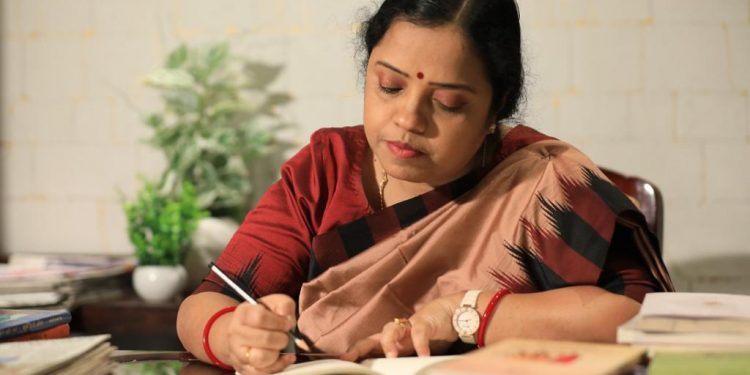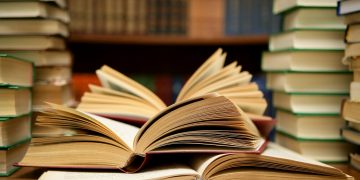She was honoured with Sahitya Akademi Yuva Purashkar in 2011 for her poetry anthology Gaan and has recently been selected to receive Sahitya Akademi Award for her another poetry anthology Dayanadi. She became the first Odia to achieve the rare feat of getting both the awards. She is none other than Gayatribala Panda, a respected name in literary circuit, who has been honoured with several state and national level awards during her journey as a poet and novelist. She also has participated in a number of international conferences held in India and abroad. In a tête-à-tête with Sunday POST, the prolific poet, who has 12 poetry collections in Odia, five in Hindi, two in English, two Odia short story collections, one short story collection in English, four Odia novels and an essay collection to her credit, talked on a hosts of topics.
Excerpts:
After getting Sahitya Akademi Yuva Puraskar, you have now been selected for Sahitya Akademi Award which is a unique achievement. What role does an award play in the career of a creative person?
In my opinion, love and recognition of the readers are more important than any award. However when one gets institutional recognition like this, it inspires a creative person to push boundaries and offers new challenges. It encourages a creative person to set up new benchmarks.
As a homemaker, how easy or difficult is it for you to practice literature?
First of all, there is no difference between woman and man as far as literature is concerned. But yes, women in Indian families take more responsibilities; therefore, it is challenging but not at all impossible to write. A woman can practice literature despite all her responsibilities towards her home, family and children.
Your book Dayanadi, based on history, got the Akademi honour. How challenging was it to write poems on a historical backdrop?
See, not just history, poems can be written on any other subject also. They can be on mythology, society, women issues or the economy. The idea should come automatically. When a writer decides to write on history, the subject should be there in his/her subconscious mind which finds its way in the form of a novel, short story or a poem.
The theme of most of your poems is feminism. Do you believe that women are the second gender in our society?
I don’t find any difference between a woman and man or I don’t write from gender perspectives. But being a woman, I get disturbed and feel the pain when a woman is tortured in the society or she faces harassment. Then, I don’t hesitate to express myself through poems. This could be a reason feminism often gets highlighted in my poems. And I don’t believe that women are the second gender of our society.
Being a working woman, how do you balance your literary career, family and workplace challenges?
Things become easy if we work in a disciplined manner. Every day, I spend some time with my family, with my associates at my work place, then give 2-4 hours to my creative work at the end of the day. I also write during the day if I get some time. So, balancing family, career as a writer and workplace challenges have never been an issue for me.
Had you been a man instead of a woman what would have been your approach towards your life partner?
If I were a man, I would have cooperated with my wife like the way my husband has come forward to let me grow as a poet. There should be good understanding between a couple which helps each other to grow in their respective professions.
Can a poet or writer change society through his work?
No, a poet can’t transform society overnight. It’s a gradual process. A powerful poem can make an impact on an individual and shake his inner being. Then, that particular individual can play a role in transforming others and then they can bring about changes in the society.
What is your source of inspiration or motivation behind your becoming a poet?
My grandfather was a writer. He wrote poems, novels and bhajans. I used to watch him write and loved his level of involvement. We also had a library having many books in Odia and English. My aunts and my father were also avid readers. So, I have been brought up in an environment which had a reading culture from the beginning. There is little wonder then that I went on to become an author. You can say writing was in my blood.
In this age of social media, a new poet is born every day. They also get appreciated. What would you say about this?
I think it is a very good sign and many of those who are writing in the social media also have good readership. The works of new age poets are more about reality rather than traditional stuff. The words used in these poems are comparatively simpler and the message is clear.
What will be your advice to the new age poets?
Every poet or author builds his own path and traverses his/her own journey. For that, one needs to concentrate really hard. This apart, he or she has to be deeply connected with the mother tongue and literary tradition, have respect towards the predecessors, good relation with the contemporary poets and authors. Most importantly, a poet has to be truthful and dedicated towards her creation.






































